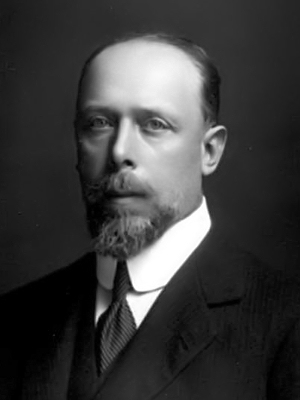Within the historical tapestry of World War II, the shadowy Division Parzival, guided by the mysterious Gudrun, captivates with its enigmatic origins and spiritual undertones. Julius Evola’s essay, intertwined with the profound chivalric traditions, sheds light on the esoteric aspects of the Grail and the symbolic representation of the woman as “intelligence.”
Division Parzival and Gudrun
Steeped in mystery, Division Parzival emerges as a military unit with a unique purpose, shaped by the enigmatic demands of Gudrun, also known as ‘Albruna.’ Her wisdom, akin to the legendary ‘Sophia,’ infuses an otherworldly quality into the narrative. The references to the house of the Chalice and the Grail mystery suggest a deeper, symbolic significance to the division’s formation, leaving us to ponder the spiritual initiation its soldiers may have undergone.
The Grail and Chivalry
“The temple of the Grail” occupies a central role in chivalric traditions, embodying an esoteric aspect of knighthood. The Grail, a mystical vessel with its own luminosity, represents a divine connection, conferring eternal youth and transcending earthly needs. The Christian adaptation of the Grail legend raises questions about the disappearance and return of the Grail, associated with a heroic race capable of guarding it. Julius Evola emphasizes the Grail’s pagan origins, drawing parallels with Celtic sagas and the symbolism of Avalon.
Chivalric Symbolism of the Woman
Chivalry’s unique cult of the woman, where knights pledged unconditional loyalty and sought glory in her name, is explored. This devotion, often expressed through strange customs and erotic tales, reveals a symbolism transcending the physical realm. The woman in chivalry becomes a symbol of sacred wisdom, intelligence in a transcendent sense, and a personification of transfiguring spirituality. Evola connects this symbolism to ancient Aryan paganism and suggests a hidden pagan initiation doctrine behind the Grail legends.

Luigi Valli‘s exploration of the woman as “intelligence” provides a unique lens through which to view chivalry. The essay delves into the erotic aspects of this symbolism, portraying the woman not merely as a physical entity but as a representation of sacred wisdom. The knight’s ritualistic undressing by his “wife” and the accompanying bath become symbolic acts, representing purification and initiation into a higher, spiritual realm.
Rejection of Servilism towards the Divine
Valli’s perspective challenges the notion of servitude towards the divine within the chivalric traditions. As also Evola posits that, unlike in Christian beliefs, Aryan pagan traditions did not subscribe to the pathos of sin and redemption or the horrors of the afterlife. Instead, they embraced a twofold way, a twofold possibility, and a twofold destiny: one leading to the ancestral and earthly realms, and the other to the luminous realms of the gods, devayâna, and heroes.
At the height of medieval society, the revival of the pagan idea of a supreme “solar” authority through the ideal of empire was evident. The temple and Grail symbolism served as Christian clothing for a super-religious heroic thought. Evola suggests that, in this context, the symbolism of the “woman,” especially in her relation to the Grail legends, hid a pagan initiation doctrine.
This doctrine rejects religious evasion and servilism towards the divine. It asserts a “sunny” attitude, wherein the principle of wisdom, immortal life, and power, to which the knight consecrates himself and remains “faithful” until death, bears feminine characteristics in contrast to the spiritual masculinity of the initiate.
Pagan Initiation Doctrine
Evola posits that the symbolism of the woman in relation to the Grail legends hides a pagan initiation doctrine. It contrasts the twofold destiny in Aryan paganism with the Christian doctrines of sin and redemption. The “sunny” attitude, wherein the principle of wisdom and immortal life bears feminine characteristics, signifies a rejection of servilism towards the divine. The connection to hermetic-alchemical traditions and the “myth” of the “immortal independent generations” further emphasizes the esoteric nature of chivalric symbolism.
The investigation into Division Parzival, intertwined with insights from Evola’s “The Grail and the Woman,” unveils a complex tapestry of symbolism and hidden doctrines within chivalric traditions. The enigmatic Gudrun, Division Parzival, and the Grail mystery are revealed as conduits for exploring the intersection of spirituality, paganism, and the esoteric in the midst of historical upheaval …

Luigi Valli
* Luigi Valli was an Italian writer and scholar known for his work on the interpretation of Dante’s works and those of the Dolce Stil Novo poets. His most notable contribution appears to be a book published in 1928 by the Optima publishing house in Rome, which was later supplemented in 1930 by a second volume dedicated to “Discussions and additional notes” stemming from the first. Unfortunately, Valli passed away suddenly in 1931, leaving his discourse on the profound interpretation of the “obscure” language of Dante’s works and the poets of the Dolce Stil Novo incomplete.
His work is described as virtually unobtainable since then, except in exceptionally well-stocked libraries, despite being consistently cited by scholars of Italian medieval “literature” and specifically by Dante scholars. Valli’s approach to interpretation is praised for its uniqueness and perceived methodological clarity, often likened to a mathematical method. Prior to Valli, no one had provided such a methodical interpretation of the enigmatic poems and writings of major Italian literary figures from Dante to Boccaccio and Petrarch.
The excerpt suggests that Valli’s work offers a potentially groundbreaking perspective on the “mystical” or “initiatory” aspects of these literary works, stripping away centuries of philological criticism to reveal deeper, previously unnoticed layers of meaning. It’s noted that only a few modern authors, such as Foscolo, Rossetti, Pascoli, and Aroux, had made intuitive attempts in this direction, but Valli’s work is distinguished by its systematic and courageous approach.
In summary, Luigi Valli emerges as a significant figure in Italian literary scholarship, particularly for his innovative approach to interpreting the works of Dante and other medieval Italian poets, shedding new light on their complexities and hidden meanings.
https://shop.maier-files.com/product-category/merchandise/mugs



